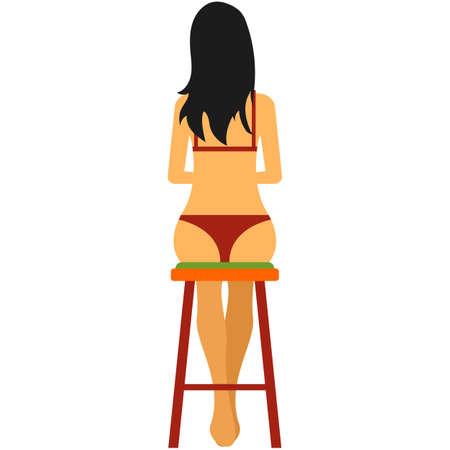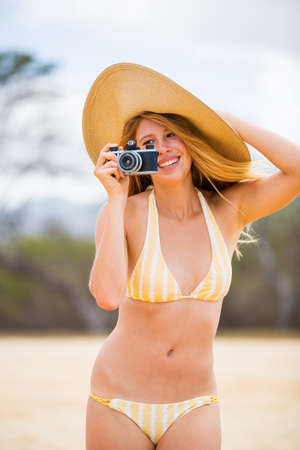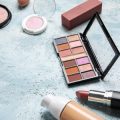1. Why Sunscreen Matters: The Importance of Daily Sun Protection
When it comes to skincare, sunscreen is one of the most important steps you can take—every single day. Whether youre running errands in sunny California, commuting through cloudy Seattle, or spending a weekend hiking in Colorado, protecting your skin from the sun’s harmful UV rays is essential.
Why Is Daily Sunscreen Use So Important?
Even when its cloudy or youre indoors near windows, UV rays can still reach your skin. These invisible rays cause more than just sunburn—they contribute to premature aging, dark spots, and even increase the risk of skin cancer over time. Using sunscreen daily helps shield your skin from these effects, keeping it healthier in the long run.
Benefits of Daily Sunscreen Use
| Benefit | How It Helps |
|---|---|
| Prevents Sunburn | Protects against immediate damage caused by UVB rays |
| Reduces Risk of Skin Cancer | Blocks harmful radiation that can lead to melanoma and other types of skin cancer |
| Fights Premature Aging | Helps prevent wrinkles, fine lines, and sunspots caused by UVA rays |
| Maintains Even Skin Tone | Protects against hyperpigmentation and discoloration over time |
The U.S. Climate Factor: Why It Matters Where You Live
The United States has a wide range of climates—from the dry deserts of Arizona to the humid coasts of Florida and the snowy regions in the Midwest. No matter where you are, UV rays are present year-round. In fact, snow and water can reflect sunlight and increase exposure. This makes using sunscreen not just a summer thing—but a daily habit for everyone across the country.
Sunscreen Is for Everyone—Every Day
No matter your age, skin type, or location, sunscreen is an essential part of your skincare routine. And the good news? You don’t have to spend a fortune to get great protection. Many affordable and dermatologist-recommended sunscreens are available at local drugstores across America—making healthy skin accessible for all.
2. What to Look for in a Drugstore Sunscreen
When youre browsing the sunscreen aisle at your local drugstore, it can feel overwhelming with so many options on the shelves. To make it easier, here are the key features American consumers should look for when choosing an effective and affordable sunscreen.
Broad-Spectrum Protection
Always choose a sunscreen labeled “broad-spectrum.” This means it protects against both UVA rays (which cause premature aging) and UVB rays (which cause sunburn). Broad-spectrum coverage is essential for full skin protection, especially if you’re spending time outdoors during peak sunlight hours.
SPF Ratings
SPF stands for Sun Protection Factor. In general, dermatologists recommend using a sunscreen with at least SPF 30 for daily use. If youre going to be outside longer—like at the beach or on a hike—opt for SPF 50 or higher. Here’s a quick guide:
| SPF Rating | UVB Protection Level | Best For |
|---|---|---|
| 15–29 | Low to Moderate | Short outdoor exposure (e.g., errands) |
| 30–49 | High | Daily use and moderate sun exposure |
| 50+ | Very High | Extended outdoor activities or sensitive skin |
Water Resistance
If you’re swimming or sweating, look for sunscreens labeled “water-resistant.” These products typically protect skin for either 40 or 80 minutes while in water. Just remember: no sunscreen is completely waterproof, so reapplication is key.
Skin Type Compatibility
Your skin type plays a big role in finding the right sunscreen. Heres what to consider:
| Skin Type | Sunscreen Features to Look For | Common Ingredients |
|---|---|---|
| Oily/Acne-Prone Skin | Oil-free, non-comedogenic formulas that won’t clog pores | Zinc oxide, niacinamide, silica-based ingredients |
| Dry Skin | Hydrating ingredients like hyaluronic acid or glycerin | Chemical sunscreens with moisturizing bases |
| Sensitive Skin | Fragrance-free, hypoallergenic, mineral-based formulas | Zinc oxide, titanium dioxide |
| Normal/Combination Skin | Balanced formulations that hydrate without heaviness | A mix of mineral or chemical filters depending on preference |
Chemical vs. Mineral Formulas
Chemical Sunscreens
Chemical sunscreens absorb UV rays and convert them into heat. They tend to go on smoothly and work well under makeup. Common active ingredients include avobenzone, octocrylene, and oxybenzone. However, some people with sensitive skin may find them irritating.
Mineral (Physical) Sunscreens
Mineral sunscreens sit on top of the skin and reflect UV rays. They usually contain zinc oxide or titanium dioxide. These are often better for sensitive skin and children but may leave a white cast depending on the formulation.
Chemical vs. Mineral Comparison Table:
| Chemical Sunscreen | Mineral Sunscreen | |
|---|---|---|
| Main Function | Absorbs UV rays into skin then dissipates as heat | Sits on skin surface and reflects UV rays away from skin |
| Main Ingredients | Avobenzone, Oxybenzone, Octinoxate, etc. | Zinc Oxide, Titanium Dioxide |
| Feel on Skin | Lighter texture; blends easily under makeup | Might feel thicker; may leave white residue (less common with tinted versions) |
| Sensitivity Risk? | Higher chance of irritation for sensitive skin types due to synthetic filters and fragrance additives | Tends to be gentler; ideal for babies and sensitive skin users |
Selecting the right sunscreen doesn’t have to be complicated. Whether you prefer mineral or chemical formulas, understanding these features will help you make smarter choices next time you hit your neighborhood drugstore.

3. Top Affordable Drugstore Sunscreens Loved by Americans
When it comes to sun protection, Americans trust reliable brands that are easy to find and budget-friendly. Whether you’re shopping at CVS, Walgreens, or Target, there are plenty of dermatologist-recommended sunscreens that provide excellent protection without breaking the bank. Below are some of the most popular and effective options available at major U.S. drugstores.
🌞 Best Drugstore Sunscreens for Daily Use
These sunscreens are lightweight, non-greasy, and perfect for everyday wear under makeup or on bare skin. Theyre especially great for sensitive skin types.
| Sunscreen | SPF | Skin Type | Why It’s Loved | Approx. Price |
|---|---|---|---|---|
| CeraVe Hydrating Mineral Sunscreen SPF 30 | 30 | Dry/Sensitive | Contains ceramides & niacinamide; gentle on skin | $13-$15 |
| Neutrogena Ultra Sheer Dry-Touch SPF 55 | 55 | All Skin Types | Lightweight, fast-absorbing, great for oily skin | $9-$11 |
| Eucerin Daily Protection Face Lotion SPF 30 | 30 | Sensitive/Normal | Mild formula with added moisturizers; ideal for daily use | $8-$10 |
| Aveeno Positively Mineral Sensitive Skin Sunscreen SPF 50 | 50 | Sensitive/Dry | Zinc oxide based; fragrance-free; suitable for kids too | $10-$12 |
| Burt’s Bees Renewal Day Lotion SPF 30 | 30 | Mature/Dry Skin | Naturally derived ingredients with anti-aging benefits | $14-$16 |
🧴 Sunscreens for Outdoor Activities & Sports
If you’re heading to the beach, hiking, or working out in the sun, these formulas offer long-lasting protection and water resistance.
| Sunscreen | SPF | Main Benefit | Sweat/Water Resistant? | Approx. Price |
|---|---|---|---|---|
| Coppertone Sport Sunscreen Lotion SPF 50 | 50+ | Tough against sweat; non-greasy texture | Yes (80 min) | $7-$9 |
| BANANA BOAT Ultra Sport Sunscreen Spray SPF 50+ | 50+ | No-rub spray application; durable sun protection for active use | Yes (80 min) | $8-$10 |
| L’Oréal Paris Advanced Suncare Quick Dry Invisible Mist SPF 50 | 50+ | Mist format; dries quickly with no white cast | No (but long-wear) | $10-$12 |
| CeraVe AM Facial Moisturizing Lotion with SPF 30 | 30 | Doubles as a morning moisturizer with sunscreen; includes ceramides | No | $12-$15 |
Your Local Go-To Stores 🛒:
- CVS Pharmacy: Carries most national sunscreen brands along with store-brand versions that offer great value.
- Walgreens: Often has buy-one-get-one deals and loyalty rewards on skincare products.
- Target: Great selection of both drugstore staples and trendy new SPF brands like Sun Bum and Versed.
The Bottom Line: Affordable Protection is Within Reach!
You don’t need to spend a fortune to get high-quality sun protection. These top-rated drugstore sunscreens prove that effective and dermatologist-approved options are easily accessible to everyone across America.
4. Best Picks for Different Skin Types and Lifestyles
Finding the right sunscreen can be tricky, especially with so many options on drugstore shelves. Whether you have oily skin, dry patches, or a super active lifestyle, there’s a budget-friendly option out there that works just as hard as the pricey ones. Heres a breakdown of top-rated sunscreens you can find in most American drugstores, tailored to different skin needs and daily routines.
For Oily Skin
If your skin tends to get shiny or greasy throughout the day, look for lightweight, oil-free formulas that offer a matte finish.
| Product | Key Features | Why It Works |
|---|---|---|
| Neutrogena Ultra Sheer Dry-Touch Sunscreen SPF 55 | Oil-free, non-comedogenic, fast-absorbing | Keeps shine at bay while offering strong UV protection |
| CeraVe Hydrating Mineral Sunscreen SPF 30 (Sheer Tint) | Tinted mineral formula, controls excess oil | Evens tone and blends well without clogging pores |
For Dry Skin
If your skin feels tight or flaky, go for sunscreens that double as moisturizers with hydrating ingredients.
| Product | Key Features | Why It Works |
|---|---|---|
| Eucerin Daily Hydration Broad Spectrum SPF 30 | Hydrating lotion texture, fragrance-free | Nourishes dry skin while protecting against sun damage |
| Cetaphil Sheer Mineral Face Liquid Sunscreen SPF 50 | Sensitive-skin friendly, lightweight hydration | Mild formula keeps dry skin comfortable all day |
For Sensitive Skin
Sensitive skin types need gentle formulas without irritants like fragrance or alcohol. Mineral sunscreens are often a safe bet.
| Product | Key Features | Why It Works |
|---|---|---|
| La Roche-Posay Anthelios Mineral Sunscreen SPF 50 | Zinc oxide-based, fragrance-free, dermatologist-tested | Mild enough for reactive skin yet highly protective |
| Aveeno Positively Mineral Sensitive Skin Sunscreen SPF 50 | No parabens or phthalates, soothing oat extract | Cares for delicate skin while shielding from UV rays |
For Acne-Prone Skin
If youre dealing with breakouts, opt for non-comedogenic formulas that won’t clog pores or trigger irritation.
| Product | Key Features | Why It Works |
|---|---|---|
| EltaMD UV Clear Broad-Spectrum SPF 46 (available at select drugstores) | Nicotinamide (Vitamin B3), oil-free, calming formula | Treats redness and acne while protecting from sun damage |
| Clean & Clear Oil-Free Sunscreen SPF 30 | Lighweight gel-cream texture, budget-friendly option | No greasiness and won’t aggravate breakouts |
For Melanin-Rich Skin Tones (No White Cast)
Darker skin tones benefit from sheer or tinted formulas that blend easily without leaving a chalky residue.
| Product | Key Features | Why It Works |
|---|---|---|
| Black Girl Sunscreen SPF 30 | Sunscreen made for melanin-rich skin; moisturizing formula with jojoba and avocado oils | No white cast; enhances glow while protecting from harmful rays |
| CeraVe Hydrating Mineral Sunscreen SPF 30 (Tinted) | Tinted mineral base; developed with dermatologists | Evens out tone and disappears into darker complexions |
Sunscreens for Active Lifestyles & Outdoor Enthusiasts
If youre always on the go—whether running errands or hitting the trails—you’ll want something water-resistant and long-wearing.
| Product | Key Features | Why It Works |
|---|---|---|
| BANANA BOAT Sport Ultra SPF 50+ Lotion | Sweat & water resistant up to 80 minutes; broad spectrum UVA/UVB protection | Iideal for sports and outdoor fun; stays put through sweat |
| Coppertone Sport Sunscreen Spray SPF 50 | No-rub spray application; water-resistant; lightweight feel | Easily reapplied on-the-go during hikes or beach days |
| BullFrog Land Sport Quik Gel SPF 50 | Cools on contact; dries fast; non-greasy gel texture | A favorite among hikers and bikers who need quick-drying coverage |
The best sunscreen is the one you’ll actually use every day. Luckily, drugstores across America carry plenty of effective and affordable options to suit every need—from sensitive faces to sweaty adventures. Keep these picks in mind next time you’re browsing the sunscreen aisle!
5. Tips for Applying and Reapplying Sunscreen Properly
Even the best drugstore sunscreen won’t work if it’s not applied correctly. To get the most out of your sunscreen—whether it’s a mineral or chemical formula from brands like Neutrogena, CeraVe, or La Roche-Posay—its important to know how to use it properly. Here are some easy-to-follow tips for applying and reapplying sunscreen so you can stay protected under the American sun.
How Much Sunscreen Should You Use?
Most people don’t apply enough sunscreen, which reduces its effectiveness. A good rule of thumb is the “shot glass” rule: use about one ounce (a shot glass full) for your entire body and a nickel-sized amount just for your face.
Recommended Amounts by Area
| Body Part | Amount to Apply |
|---|---|
| Face & Neck | Nickel-sized amount |
| Arms | 1/2 teaspoon each arm |
| Legs | 1 teaspoon each leg |
| Torso (front & back) | 1 teaspoon per side |
When Should You Apply Sunscreen?
Sunscreen should be the last step in your skincare routine before applying makeup or heading outdoors. Apply it at least 15 minutes before sun exposure to give it time to absorb into your skin. Don’t forget commonly missed spots like ears, hairline, and tops of feet.
How Often Should You Reapply?
Reapplication is key to maintaining protection throughout the day. Here’s a quick guide:
- Every 2 hours: When spending time outdoors, even on cloudy days.
- Immediately after swimming or sweating: Even if your sunscreen is water-resistant.
- If you towel off: Reapply right away since towels can wipe away product.
How to Integrate Sunscreen Into Your Daily Skincare Routine
If you want consistent protection without extra hassle, make sunscreen part of your everyday routine:
- Mornings: After moisturizer, apply a broad-spectrum SPF 30+ sunscreen. Many drugstore options double as moisturizers with SPF for convenience.
- Makeup Wearers: Let the sunscreen set before applying makeup. Consider using powder or spray sunscreens for touch-ups over makeup during the day.
- On-the-Go: Keep a travel-size sunscreen in your bag or car so youre always ready to reapply during outdoor activities like sports games, picnics, or errands.
The key is consistency. By making sunscreen application second nature—like brushing your teeth—you’ll protect your skin daily without even thinking about it.


